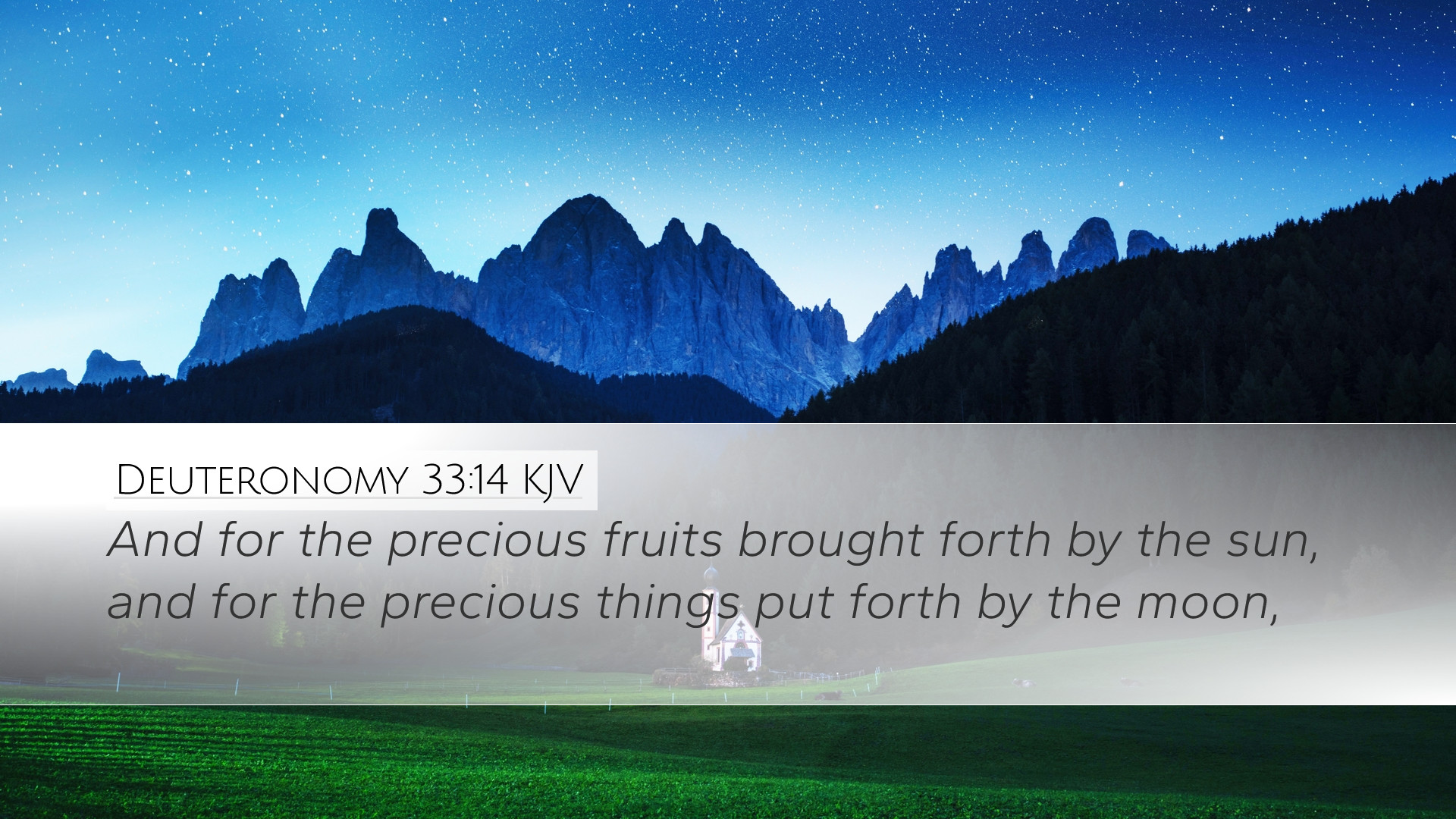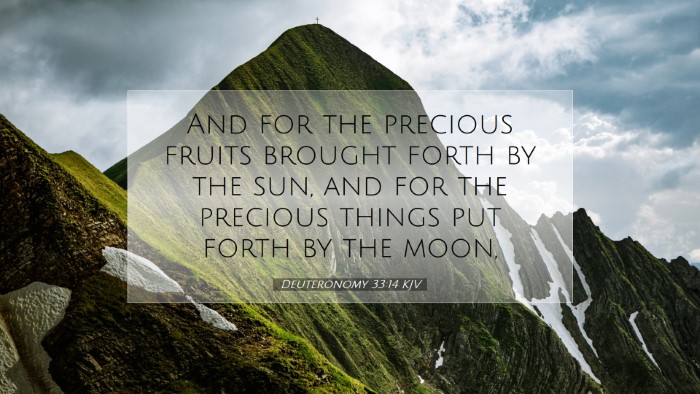Bible Commentary on Deuteronomy 33:14
Verse Context: Deuteronomy 33:14 states, "And for the precious things of the earth and fullness thereof, and for the good will of him that dwelt in the bush: let the blessing come upon the head of Joseph, and upon the top of the head of him that was separated from his brethren." This verse is part of Moses' blessing to the tribes of Israel before his death, highlighting the unique favor bestowed upon Joseph and his descendants.
Summary of Insights
In this rich verse, we observe several profound theological and practical themes. The blessings described reinforce the ongoing covenant between God and Israel, illustrating God's providence and care for His people.
1. The Significance of Joseph
Historical Context: Joseph, as a pivotal figure in the narrative of Genesis, exemplifies the themes of suffering, providence, and restoration. His life journey from slavery to the second most powerful position in Egypt serves as an allegory for God’s redemptive plans.
Matthew Henry notes the distinct separation of Joseph, who was "separated from his brethren" in both trials and triumphs. His elevation is reflected in the double portion of blessings given to his sons, Ephraim and Manasseh, signifying the fulfilling of God's promises through adversity.
2. The Precious Things of the Earth
This phrase can be interpreted as a representation of the material and spiritual blessings bestowed upon Joseph. Albert Barnes points out that the blessings upon Joseph include not only the physical provisions of the land but also the spiritual richness found in God's covenant love. A dual aspect underscores the relationship between physical sustenance and spiritual fulfillment.
Joseph’s blessings can also be seen as a foreshadowing of Christ, who provides for our material needs abundantly while also offering eternal life—both dimensions encapsulated in His ministry.
3. God's Good Will
Moses references the "good will of him that dwelt in the bush" as a recognition of God's enduring presence and covenant. Adam Clarke emphasizes that the bush symbolizes God's eternal promise to His people, reminding readers of His commitment to be with them through all generations.
This theological assurance serves to encourage believers, reinforcing the notion that God's will is fundamentally good and directed toward blessing His people. The reference reminds us that God's favor does not solely rest on the individual but extends to the community of faith.
4. Thematic Considerations
- Covenant Faithfulness: The blessings pronounced by Moses emphasize God's faithfulness to His covenant with Israel, a recurring theme throughout Scripture.
- Divine Providence: The blessings acknowledge God's providence in Joseph's life and the subsequent prosperity of his descendants, a reminder that God orchestrates events for His purposes.
- Separation for a Purpose: The mention of Joseph being “separated” evokes the idea that God often sets apart individuals for significant tasks, reflecting divine calling and purpose.
5. Application for Today
For pastors, students, and theologians, Deuteronomy 33:14 serves as a powerful reminder of the blessings and responsibilities that accompany God's favor. Understanding these dynamics is crucial for effective ministry and living out one's faith.
Matthew Henry's reflections remind us that life’s trials can lead to profound blessings when we maintain our trust in God’s overarching plan. Similarly, Albert Barnes encourages believers to view both their material and spiritual lives through the lens of divine provision.
In congregational settings, pastoral teaching can draw parallels between Joseph’s story and the lives of believers today, encouraging faithfulness amidst adversity. The assurance of God’s good will should inspire confidence in God’s ongoing work in our lives and the world.
Conclusion
Deuteronomy 33:14 encapsulates a powerful message of blessing, divine intention, and the richness of God’s provisions. It emphasizes the necessity of recognizing both the material and spiritual aspects of God's gifts. As we unpack the layers of this verse, we are called to embrace our separation for God's purposes and to trust in His providential care, evidenced throughout Scripture and realized in our lives today.


